When this year’s North Fork Championship was canceled, the whitewater community was shocked. We dig into the main factor that brought about its downfall—insurance—and whether other class V whitewater races will face the same demise.
Who killed the North Fork?
Last summer, when paddlers approached Jacob’s Ladder, a class V rapid on the iconic North Fork of the Payette River in Idaho, the roar of the crowd drowned out the thunder of the whitewater. People sat shoulder to shoulder on boulders lining the course while world-class paddlers raced in the renowned North Fork Championship (NFC), its tenth year running and arguably garnering its best turnout yet.
While those competing in the marquee class V event are a fraction of those who paddle whitewater, the festival, and others like it, has been an integral part of the kayaking community. Whitewater events more broadly celebrate amazing rivers and the outdoor spaces paddlers are privileged to enjoy. They bring attention to environmental causes such as resistance to mining and damming projects.
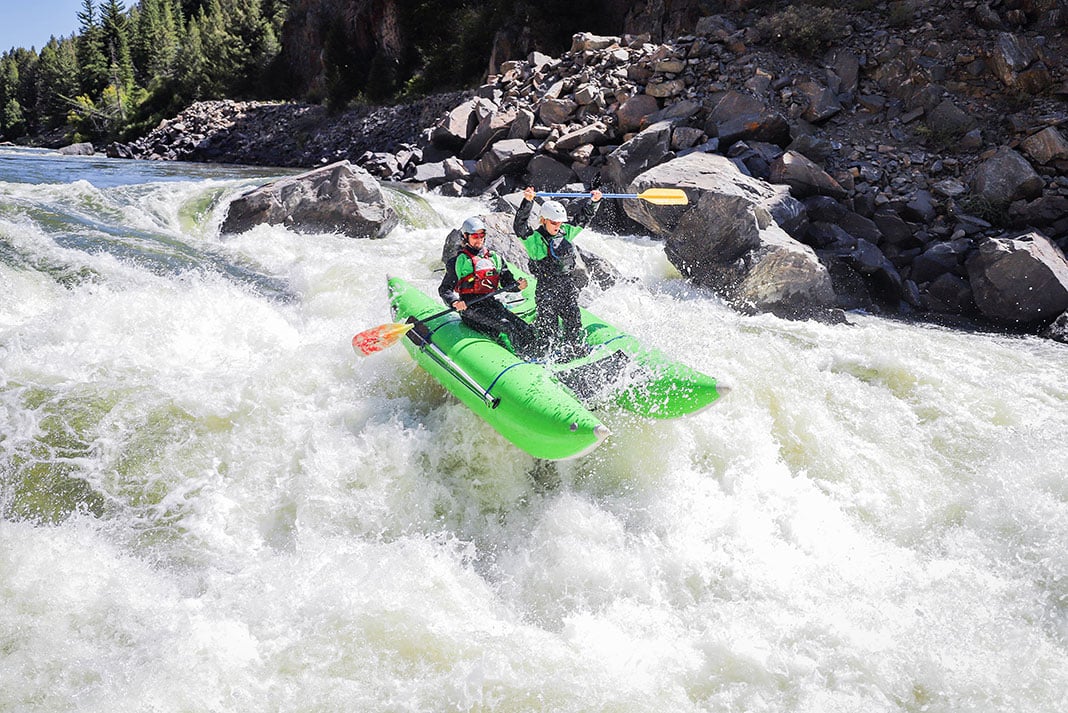
According to John Grace, one of the organizers of the Green Race—an annual class V event running on the Green River near Asheville, North Carolina—whitewater festivals are important because everyone can bring a boat, post a time and celebrate the river. Class V races fit into the festival ecosystem by showing off the more elite aspect of the sport. Plus, compared to other sports like the Olympic discipline of slalom, at class V events, athletes are super accessible to spectators.
Grace has seen kids around 10 years old do the rugged hike to watch The Green. “They get to sit, talk to the champions, take pictures with them, and inevitably in five or six years, those guys are on the start line.”
In addition to being responsible for bringing new paddlers into the fold, class V events like the NFC also help push the skill of athletes to new levels.
“The North Fork Championship was the backbone to a lot of the progression we’ve seen over the years of kayaking,” says Jody Voorhees, matriarch of the Voorhees family, who took over organizing the NFC in February 2020. “When you put the gates in there and you put the moves in there, there was only a handful of paddlers who could even do it, let alone do it at the speeds they started doing it at.”
The progression of skill year to year has been remarkable. Keep in mind conditions change, but in 2012, the winning time of two minutes, 17 seconds was set by Ryan Casey. Ten years later, the winning time was sub one minute, 30 seconds, set by Hayden Voorhees. In 2014, Canadian Katrina Van Wijk became the first female to compete. The following year, French kayaker Nouria Newman finished eighth. A women’s category was added in 2019.
The North Fork goes out on top
The June 2022 edition of the NFC was anecdotally the biggest turnout the festival had ever seen—erring on the side of too big. A local pub’s new dance floor crumpled under the weight of dancers and the line of cars parked down the highway extended farther than ever.
Yet in January 2023 the Voorhees family announced the cancellation of the NFC. The news broke amid a series of other class V race cancellations that had occurred back in the fall and were yet to come in the spring.
What gives?
A lot of work goes into planning your favorite whitewater festivals. Organizers have to be on top of logistics, including everything from safety and permits to portable toilets, sleeping arrangements and sponsors. Then, there’s insurance.
Until last year, 40 percent of class V events in the U.S. were using the American Canoe Association (ACA) to obtain insurance. The ACA is a national sport organization for paddling disciplines like slalom, wildwater, canoe polo, flatwater sprint, rafting and ocean racing. They mostly run instructional programs, offer insurance to clubs and outfitters across the country and, until late 2022, they insured class V whitewater events.
In August 2022, mere days before Gore Fest, an American Whitewater festival in Colorado, organizers were notified the ACA had changed insurance providers and its new policy wouldn’t cover class V events. Gore Fest organizers were forced to cancel the class V portion of the festival.
The ACA’s announcement sent subsequent fall races scrambling, with various outcomes.
Another American Whitewater event, Feather River Fest in California, had to cancel its class V race, though the rest of the festival went on. Similarly, in North Carolina, the Women’s Green River Takeover had to alter its program: the non-class V portion went ahead as planned, but if people decided to paddle the class V Narrows section, it would be unsanctioned.
In January, it was the NFC’s turn. The Voorhees family announced over the race’s social media platforms that it would not be making a return.
“It was probably one of the hardest decisions we’ve ever made because we love that event. We know how important it was to the kayak industry as a whole,” says Jody. “I think we would have been okay—it was a lot of work and we were up for the task—but the three years of the world being tipped on its head [during the Pandemic], and it still isn’t right, those three years really are what took the toll of just not being able to continue it at the level that it was.”
Sponsors had pulled back and the event’s size was beginning to work against it—it was becoming clear it was outgrowing its host town of Crouch (pop: 163). The ACA’s insurance pullout was just the final nail in the coffin.
The fallout continued into April, with the cancellation of Maine’s Smalls to the Wall.
Using the ACA’s insurance “made events easy,” race organizer, Jake Riesch, wrote on Facebook. “Starting from scratch, evaluating options, and figuring out how to fund it ended up being a bigger project than I could find time for. I ran out of time.”
Another insurer steps into the breach
According to Beth Spilman, the ACA’s executive director, the ACA is “working diligently to identify other opportunities to provide liability insurance for these events.”
In the meantime, the Great Falls Foundation (GFF) has stepped up to the plate.
About 10 years ago, Chuck Thornton and his friends decided to get involved with their local event, the Great Falls Race on the Potomac River, which sees competitors paddle a class V rapid of the same name. The race had been going on for about 30 years, but had struggled largely due to being run by an ad hoc group. Thornton and his friends thought there must be a better way to run it that could be neutral in the sense that it wasn’t attached to a private outfitter. The Great Falls Foundation was created in 2015 and received charitable status in 2016.
The Foundation gave them a way to talk to bigger permitting agencies that may have been hesitant to speak with individuals. Last fall, the GFF helped secure individual insurance policies for the Whitewater King of New York and Lord of the Fork races, saving them from cancellation.
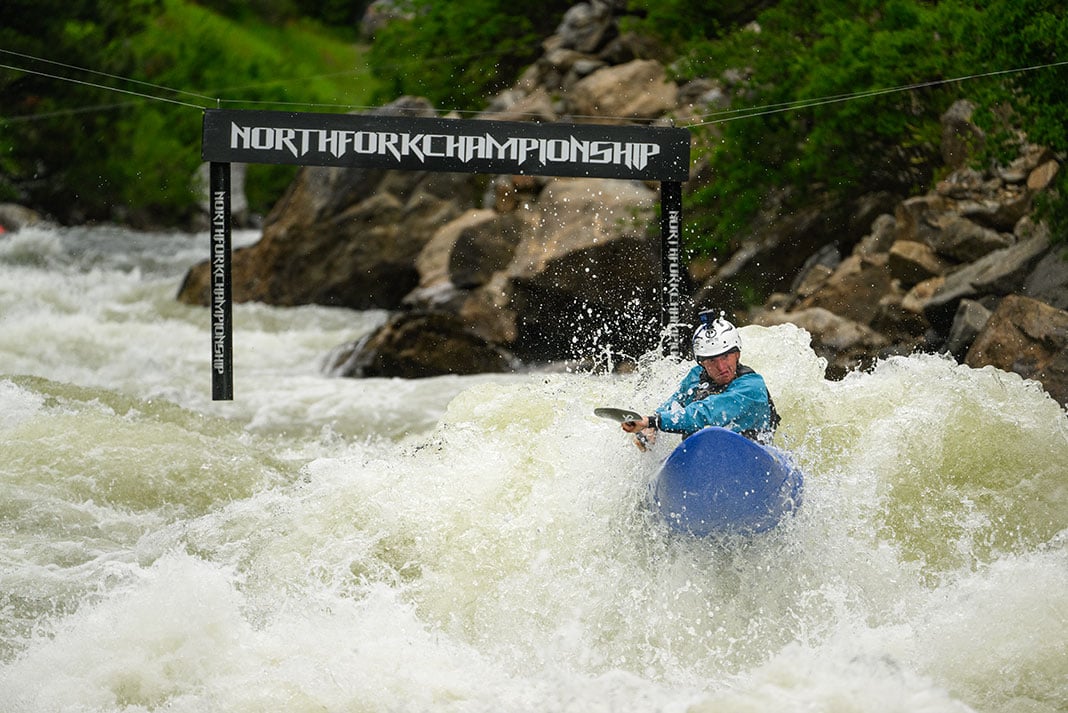
This year, the GFF is in the midst of hosting seven class V events and nine class I to IV events across the U.S.
Although the GFF has been able to secure individual insurance policies for a handful of races, it’s an expensive and temporary solution. Thornton is still searching for an annual policy and some race organizers are waiting to see what he or the ACA come up with.
Part of the struggle in finding insurance is that every race director will have different insurance requirements and comfort levels regarding policies, so what’s suitable for someone in Idaho might not work for an event in California.
The insurance policy the GFF has been able to secure, for example, offers a $2 million aggregate, but for races taking place on land that is managed by federal entities such as the Bureau of Land Management and National Park Service, a minimum of $3 million is required, says Thornton. “Everybody has to do their risk management and risk assessment,” he says.
For the races he oversees, Thornton isn’t too worried about the racers. “They know what they’re getting themselves into,” he says. If they aren’t feeling it the day of a race, some paddlers will opt to stay dry. “I worry more about spectators who damage land or a spectator who falls on a rock and twists their ankle.”
Another obstacle for events in obtaining new insurance coverage is an inability to access the loss run data from their time insuring through the ACA.
The Green Race had worked with the ACA for more than 10 years and even helped develop the safety plan for class V events. In Grace’s opinion, the ACA really “dropped the ball,” but thankfully they were able to secure their own insurance policy—which they shared with other event organizers—and run the race in November 2022 as usual.
Unfortunately, they weren’t able to access any of the loss run data from their previous policy through the ACA. This data is important if you want to secure a good rate. Grace says the Green has a clean record. But without the loss run data, they can’t prove it.
“That was the biggest gut punch for us,” says Grace. “We’ve done all this work to make this stuff as clean, efficient and professional as it could be and we really didn’t have anything to show for it.”
Based on conversations Thornton has had with insurance providers, the insurance industry is operating on a misconception about class V paddling: that it’s dangerous. However, Thornton says in the eight years the GFF has been running events, they’ve never had a claim—a sentiment echoed by Voorhees and Grace.
At the ACA, Spilman confirmed there hasn’t been an insurance claim for a class V event for “way longer than five years.”
Class V events get back on track
Despite having to start from scratch on insurance, the 2023 calendar of class V races has returned to business as usual—other than the hole in June left by the NFC.
Jody Voorhees is happy her family was able to give the NFC two more years and she isn’t counting it out yet. But if it does make a comeback, it wouldn’t be under the same name or with the Voorhees family organizing. Jody sees potential for what happened with Adidas Sickline in Europe. After that event folded, a new one—the Oetz Trophy—rose on the same rapid.
While the NFC is off the racing calendar, race directors across the country are optimistic about what’s to come, predicting continued growth.
The Green Race and the NFC had both embraced new technology and were livestreaming their events—the NFC’s Starlink address was the Hwy 55 pullout above Jacob’s Ladder. While in the past you had to be riverside to be part of the action, now there are watch parties all over the world.
Grace thinks the sport is ready to be taken to a larger audience, possibly a network. “It’s super exciting watching every single minute for three hours as people take on these courses.”
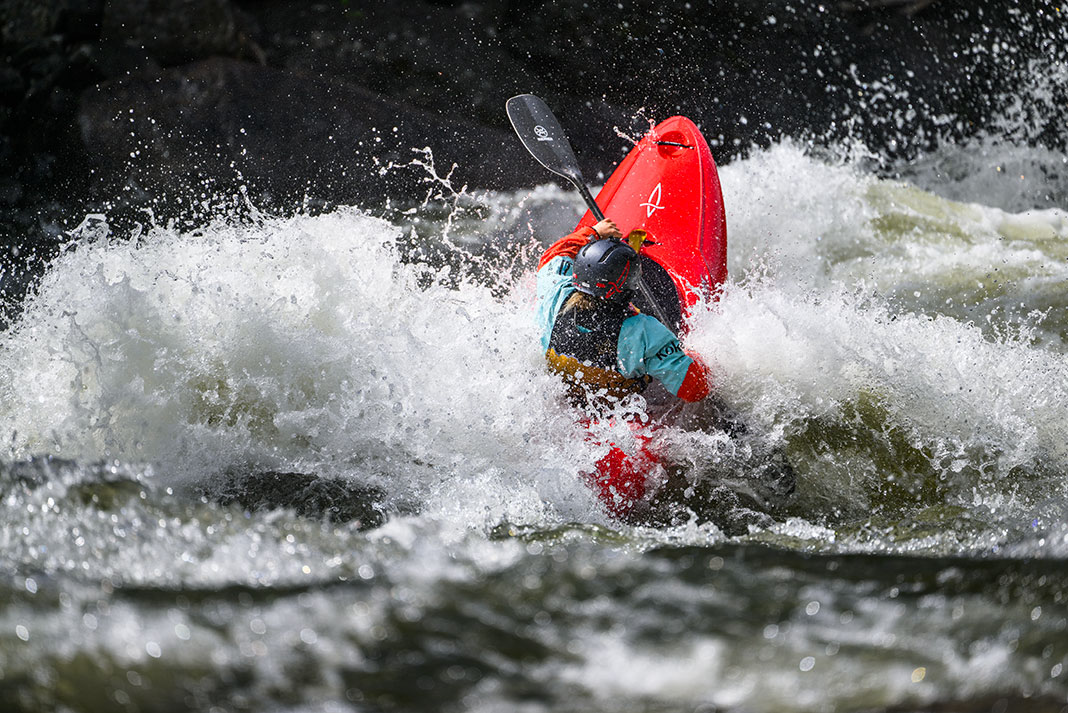
There have also been hints at greater collaboration among the different events and festivals.
After the initial sting of the ACA’s decision, just over half a dozen class V race organizers met for an online summit in mid-January.
The purpose of the summit was twofold: address the acute insurance situation by sharing information and contacts and share best practices with other race organizers around hosting in regards to permits, safety, registration, race timing, course design, spectator management, marketing, and making money through sponsorship and fundraising.
Now there are whispers about the rise of a new class V initiative: the Whitewater Racing League. It’s from the same team behind the Green Race and would feature a racing circuit connecting race organizers across the country, offering information on how to put on a solid event while also providing a common leaderboard.
While there will likely always be obstacles to these races that create uncertainty for a time, the spirit of the whitewater community has proven to be strong—and if there’s one thing we know for certain, it’s that these events aren’t going anywhere.
Marissa Tiel is an award-winning B.C.-based photojournalist and journalist. Connect with her @marissatiel.
Sage Donnelly at the last North Fork Championship in 2022. | Feature photo: Dan Stewart



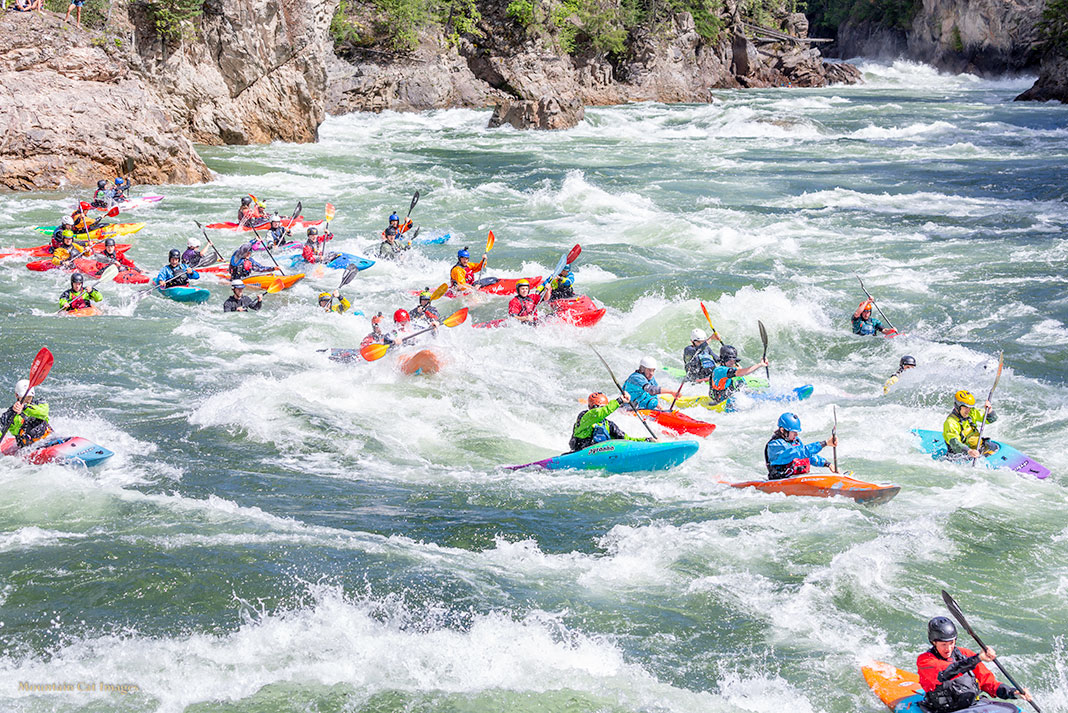
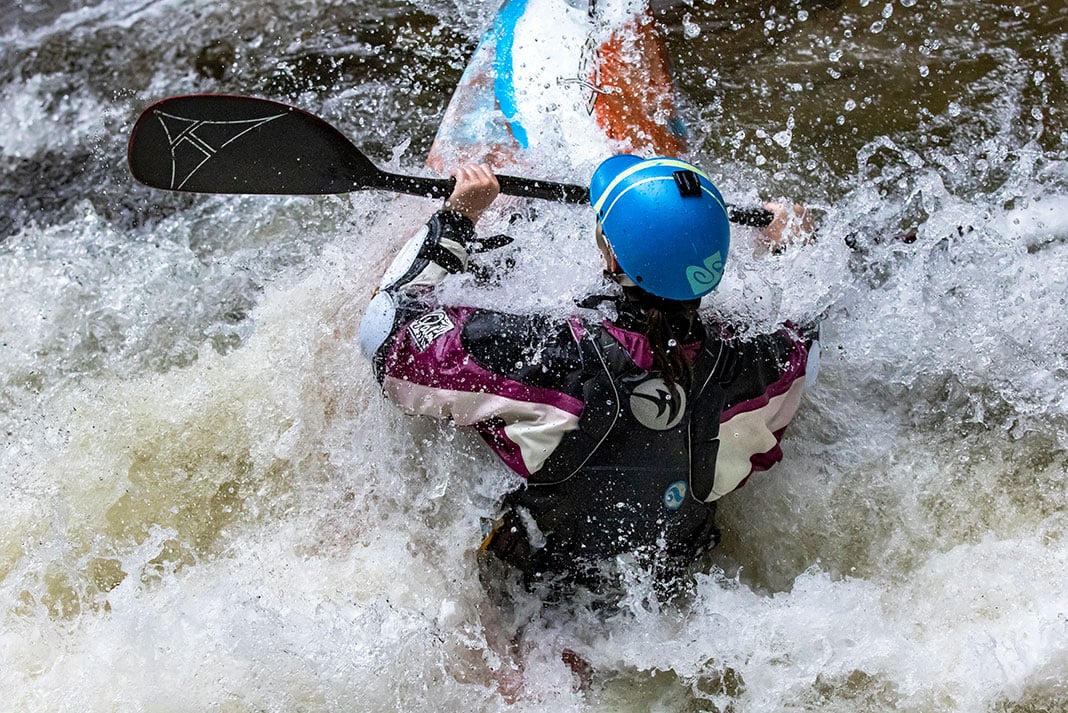
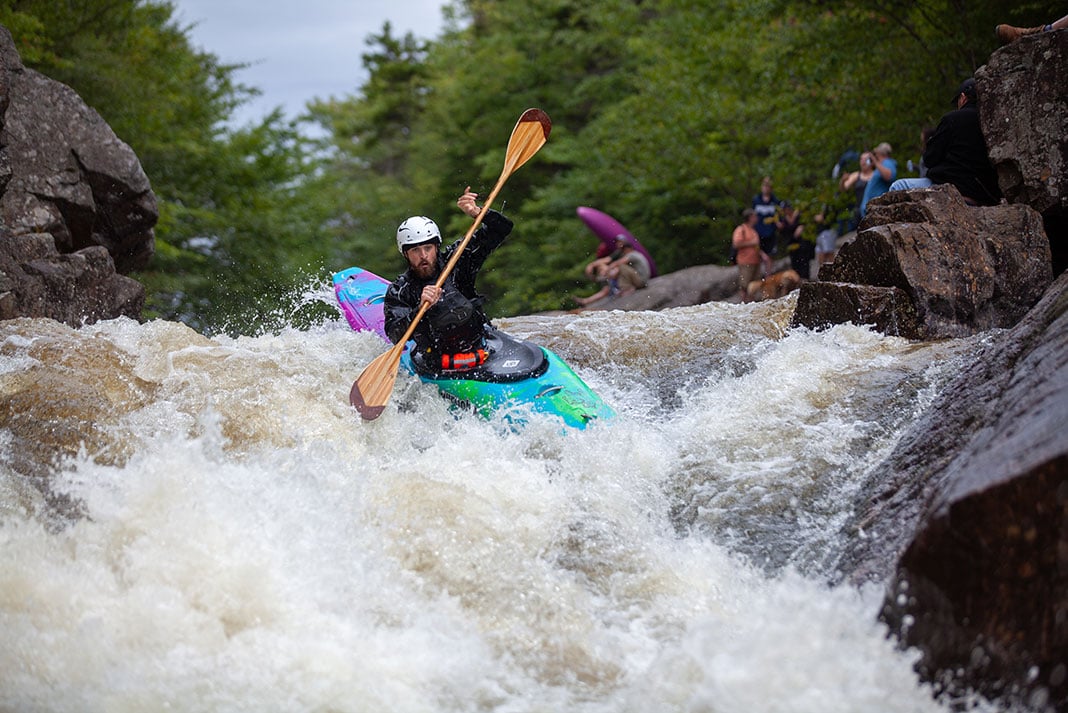
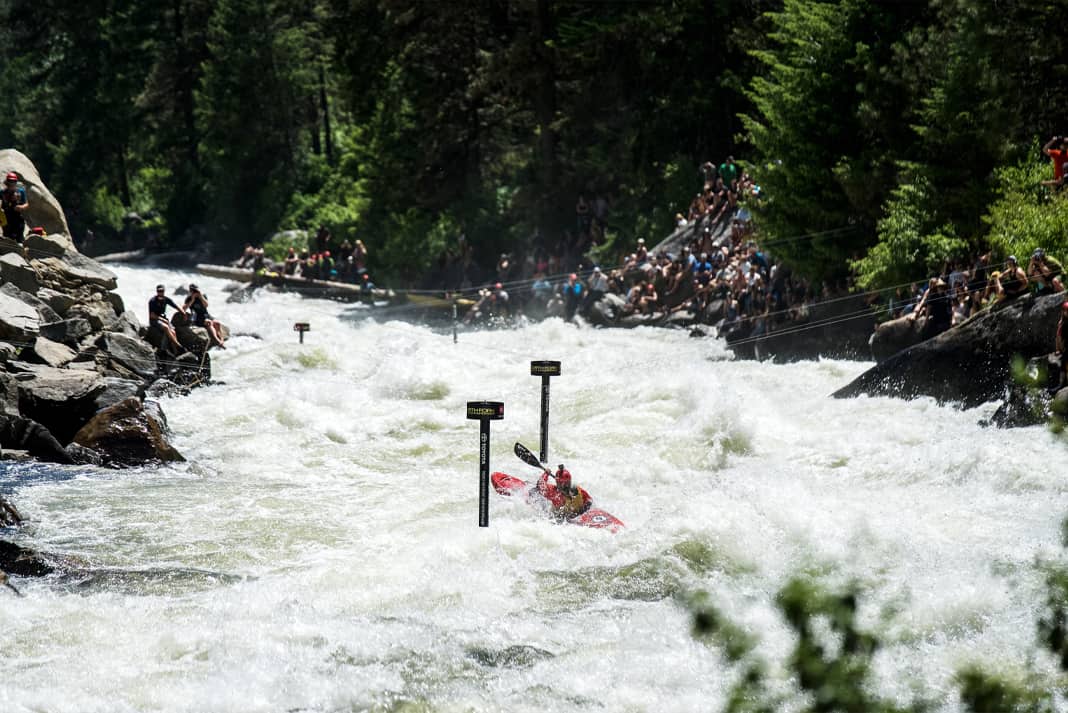
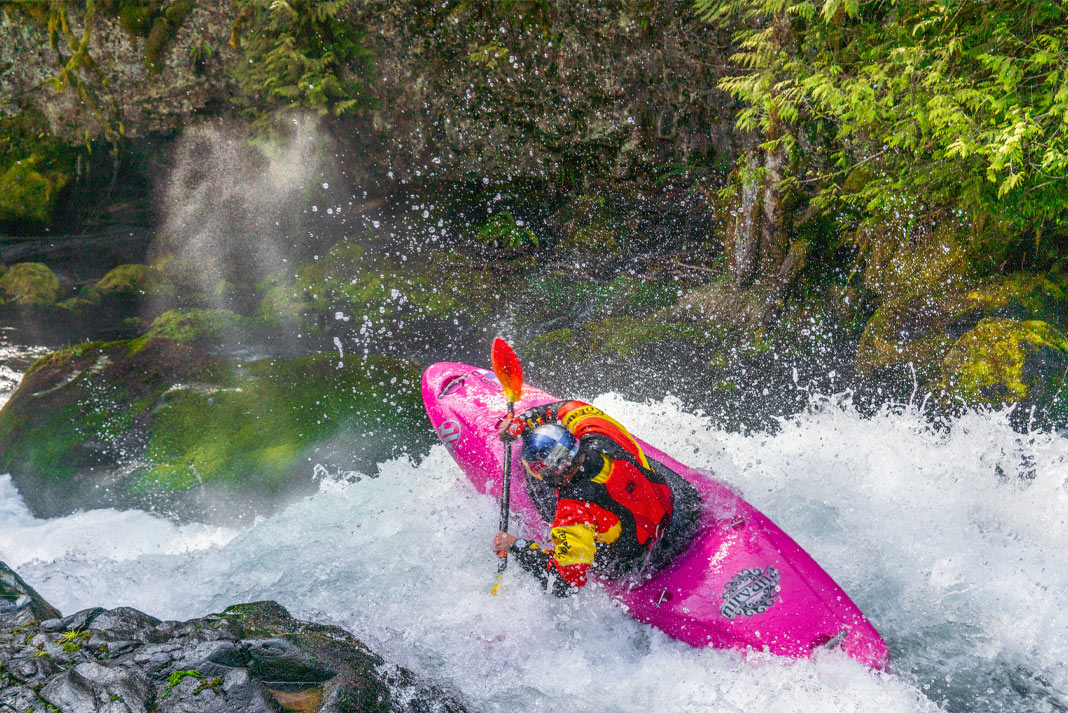
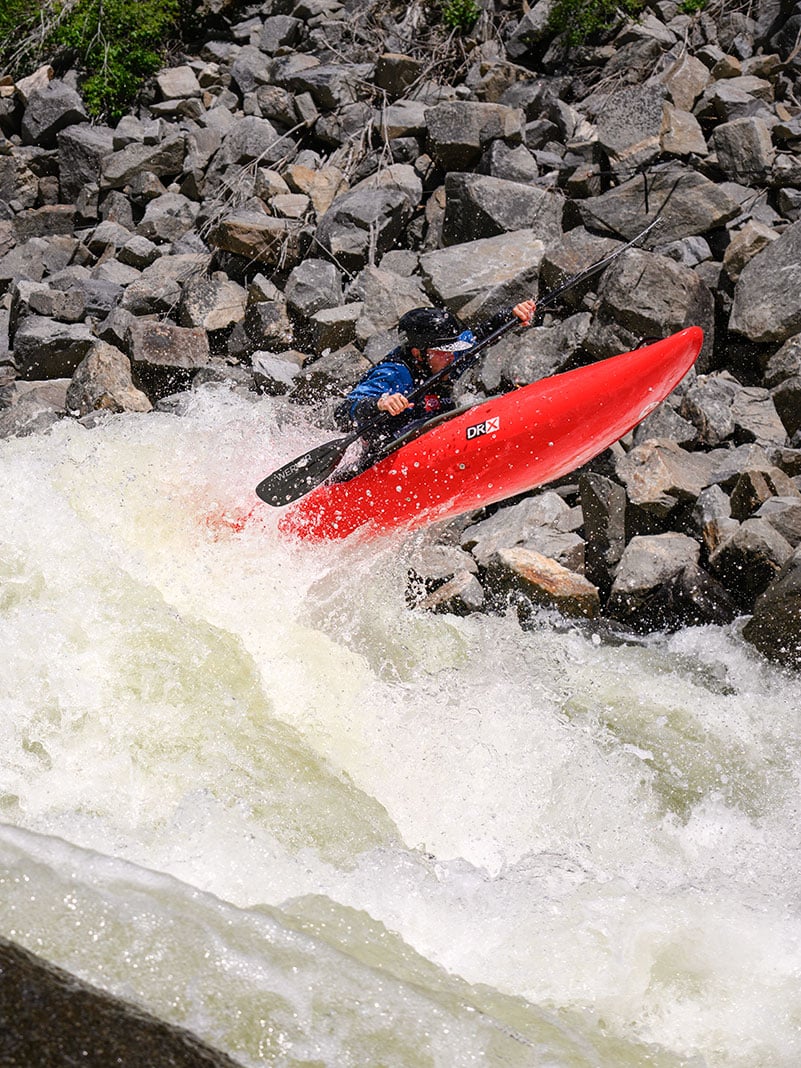
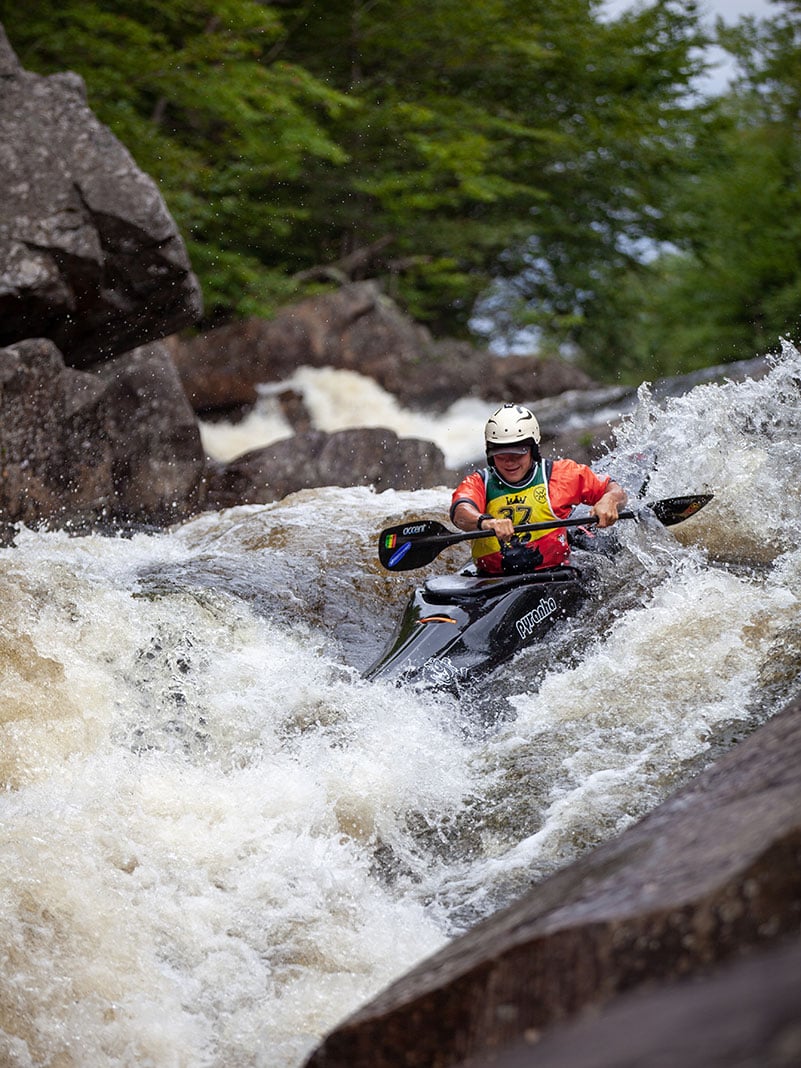
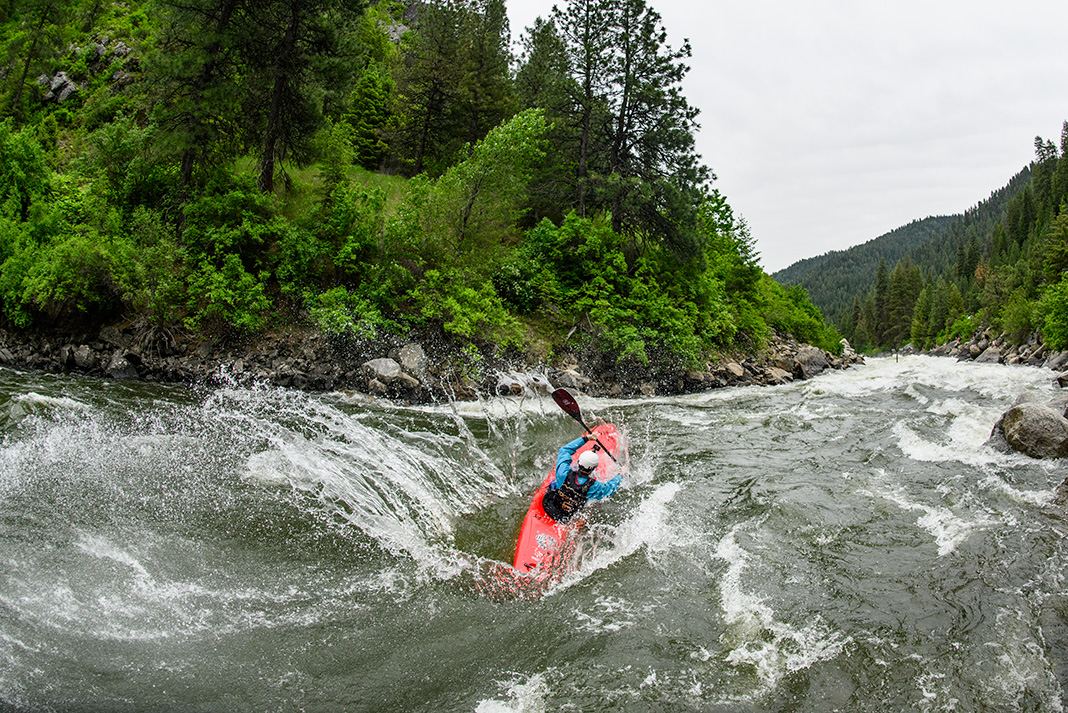
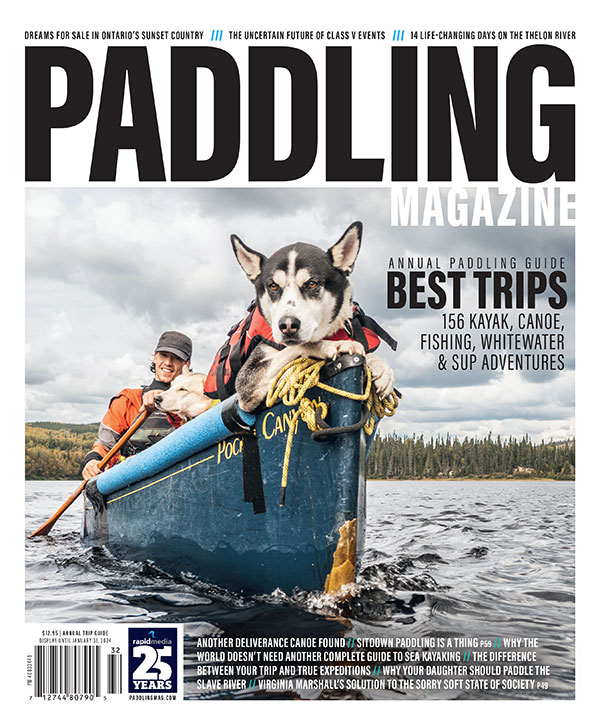 This article was first published in the 2023 Paddling Trip Guide.
This article was first published in the 2023 Paddling Trip Guide. 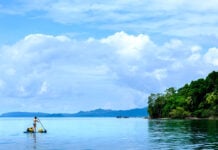
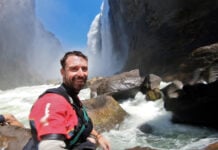

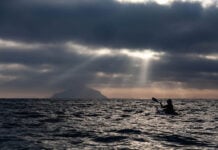
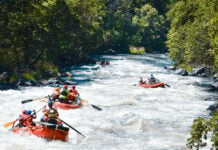

Again, the American Canoe Association let’s down the people that are pushing the sport forward. This organization is stuck in the past and only is about collecting membership fees. These events push the sport and make it possible for athletes to pursue whitewater paddling in a more professional way. The ACA is just standing in everyone’s way and not moving forward with the sport or the times. It is just par for the course. All the organizational heads ever do is make promises regarding what they will do and excuses for their administrative failures. Bottom line there is truly no incentive to join or be a member of the ACA when more and more cutbacks that are a detriment to the sport occur.
Again, the American Canoe Association fails to effectively govern the sport and serves to be a hinderance to progress.
All athletes and professional paddlers need to boycott the American Canoe Association and start a new organization that is progressive and will help to actually grow and expand the sport instead of letting everyone down. That organization had its day over 40 years ago and now is nothing more than a generator of an endorsement that is not good for much other than to line the leadership’s pockets.
Contact Covered with Carrie!!! She can insure these races!!!!!! They don’t have to be cancelled. She saved Gorefest for $800. This does not have to be the reality!
I don’t think so. The truth is that the Voorhees failed to pay the vendors (including sheriff, porta potty, ECT) and so the NFC was given back to the previous owners. Previous owner is looking for a buyer that will hopefully restore NFC within the community.